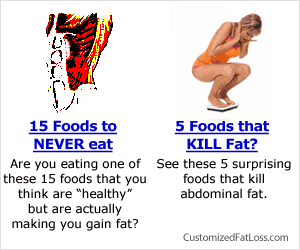Weight Loss Maintenance
Now that you have lost those pounds, weight loss maintenance should be on your mind. And since I am sure that you do not want to be part of that depressing statistic that gains the weight back, maintenance should be taken with the same importance as losing weight.
First remember that the same rules apply in your gaining weight as it did before. If you go back to a diet that consists of high-fat and calorie rich foods, rest assured, you are going to regain the weight. So do not think that just because you have lost the weight that you can now go back to your old eating habits. Yes, this should be obvious, but you would be surprised at the number of people who do just that.
Secondly, if you haven’t realized it by now, maintaining your weight represents a new lifestyle. In your previous lifestyle, your habits consisted of weight gaining behavior. In your new one, the aim is to continue the new behavior so that you can stay slim and healthy. Assuming that your diet was based on smart eating and not some fad, this should be relatively easy.
Assuming you are at the weight you want to maintain, the biggest concern for most people is how many calories do you need to consume to stay at that weight. This should not be to hard to figure out, but it may require a little experimentation.
You already know how much food you were eating to lose weight. From this, simply increase your portion sizes slightly. If you find that you are starting to gain the weight back again, you need to cut back on the increased sizes. Just make sure you take into account water weight. This can cause your weight to fluctuate a few pounds.
The easiest way to keep up with this information is with a food diary. If you were not keeping one before, I strongly suggest you start. A study conducted by the Kaiser Permanente’s Center for Health Research showed that those who keep a food diary were more successful with losing and maintaining there weight than those who did not.
And just like you need to maintain proper eating habits, you also need to continue to exercise. The exercise you performed was part of the reason why you lost the weight that you did. If you stop exercising, the calories that were once burned by them will now be stored as fat. The only way to prevent this from happening, besides exercising, is to further restrict how much food you eat.
So if you keep these few points in mind, a year from now the weight you lost will still be gone, which will be more than most other dieters will be able to say.
Tired of wasting your precious time searching all over the web for useful health information? Want expert advice on what you need to do to lose weight quickly and easily? Then check out http://www.How-to-Burn-Fat.com/blog
More Weight Loss Articles






-SMALL.gif)
